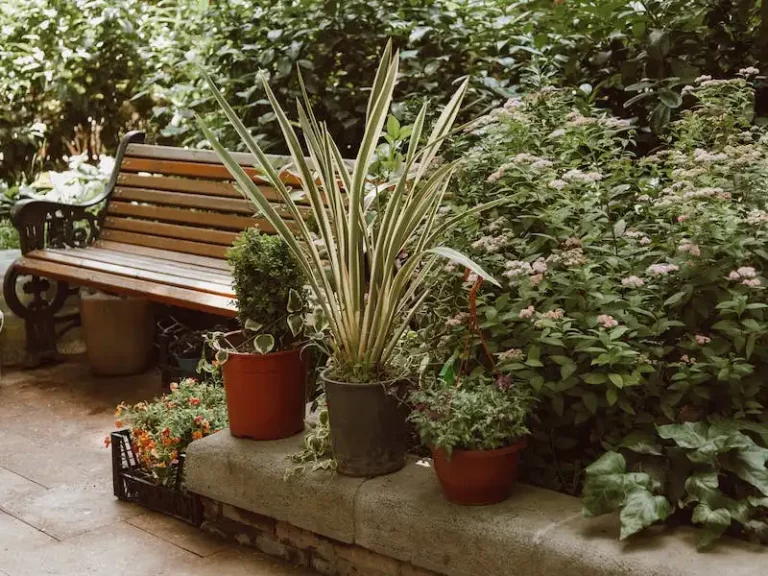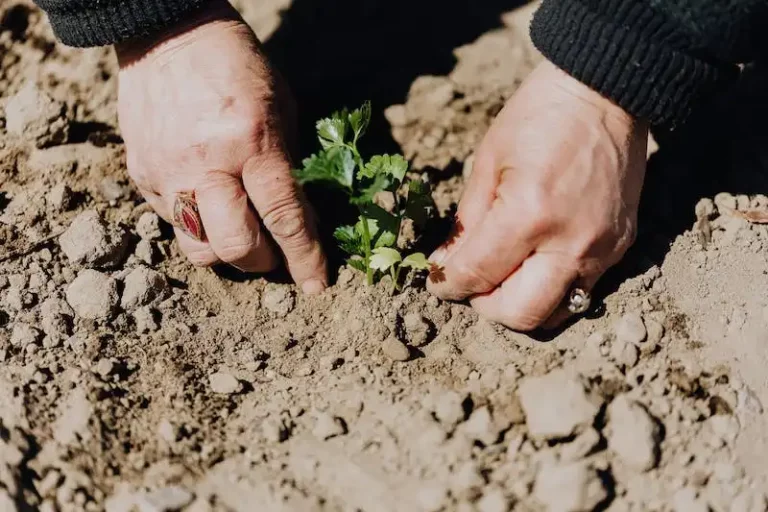Having healthy and nutrient-rich soil is crucial for the success of your garden. Whether you’re a seasoned gardener or just starting out, knowing how to improve your garden soil can make a significant difference in the growth and overall health of your plants.
One important factor to consider is the buildup of organic matter. Adding organic materials such as compost, fish meal, and manure can significantly increase the nutrient content of your soil. These materials also help improve soil structure by increasing its ability to hold water and nutrients, while also promoting the growth of beneficial microorganisms.
Another tip is to cover your soil during the winter season. Leaving your soil bare can lead to compaction, erosion, and nutrient loss. By using a layer of mulch or cover crops, you can help preserve the quality of your soil and protect it from harsh weather conditions.
When it comes to amending your soil, it’s essential to know what your specific plants need. Different plants have different nutrient requirements, so understanding which fertilizers or soil amendments to use can greatly improve the overall health of your garden. The Old Farmer’s Almanac is a great resource that provides guidelines on when and how to amend your soil based on the crops you’re growing.
One of the most recommended methods to improve soil quality is by digging it. By digging, you break up compacted soil, bring fresh air into the roots of your plants, and work organic matter into the soil, creating a more workable and nutrient-rich environment for your plants to thrive in.
If digging is not an option for you, there are other ways to improve your garden soil. Adding diverse organic materials such as grass clippings, leaves, and kitchen scraps can help increase the overall diversity and health of your soil. Additionally, using organic fertilizers and avoiding synthetic chemicals can promote the growth of beneficial microorganisms, ensuring a healthy and sustainable garden.
In conclusion, taking care of your garden soil is essential for the success of your plants. Whether you choose to dig, amend, or preserve, there are many tips and techniques you can implement to improve the quality of your soil. By understanding the specific needs of your plants, adding organic materials, and following recommended guidelines, you can create a healthy and thriving garden that will yield abundant and nutritious crops.
How to Improve Your Soil
When it comes to gardening, one of the most important things you can do is to improve your soil. Good soil drains well and contains the necessary nutrients for healthy plant growth. Here are some tips on how to improve your soil:
| Tip | Description |
| 1 | Test your soil before making any improvements. This will help you determine what types of minerals your soil may be lacking and what specific improvements you can make. |
| 2 | Amend your soil by adding organic matter, such as compost or aged manure. This will help to increase the levels of nutrients in your soil and improve its structure. |
| 3 | Rotate your crops regularly. This will prevent the depletion of specific nutrients and help to maintain a diverse and healthy soil ecosystem. |
| 4 | Add mulch to your garden beds to help retain moisture and prevent weed growth. Organic mulch, such as straw or wood chips, is a great choice. |
| 5 | Consider cover cropping in the winter months. This involves planting crops such as rye or clover that will help to prevent soil erosion, improve soil structure, and add organic matter when plowed under in the spring. |
| 6 | Apply fertilizer as needed, but be sure to follow the directions on the package. Using too much fertilizer can harm plants and leach into groundwater. |
| 7 | Monitor the pH levels of your soil and adjust as necessary. Most plants prefer a slightly acidic to neutral soil pH. Adding lime can help raise pH levels for more alkaline plants. |
Improving your soil is important for the overall health and productivity of your garden. By following these tips, you can create a fertile and workable soil that will support the growth of your plants and lead to a successful garden season.
Creating Healthy Soil
In order to promote good growth in your garden, it is crucial to have healthy soil. Whether you have sandy, clayey, or silty soil, there are steps you can take to improve its overall quality and health. This article will explore the importance of soil preparation and provide tips on how to create healthier soil for your garden.
One way to improve your garden soil is by testing it to understand its composition and any deficiencies it may have. Soil tests can help determine the pH value of your soil, whether it is alkaline or acidic, and identify any nutrient deficiencies. Based on the results of the tests, you can then take appropriate measures to address the specific needs of your soil.
Adding organic matter is another important step in creating healthy soil. Organic matter, such as compost or well-rotted manure, improves soil structure and fertility. It breaks up compacted soils, allows for better water drainage, and provides essential nutrients to plants. Adding organic matter also promotes the growth of beneficial organisms in the soil, which in turn helps to maintain the health of plants and their roots.
Another way to improve your soil is by adding amendments such as rock phosphate or bone meal. These amendments provide essential nutrients like phosphorous and calcium, which are important for plant growth. They can also help address nutrient deficiencies in the soil and improve its overall fertility.
When preparing your beds for planting, it is advisable to remove any rocks, weeds, or other debris from the soil. This helps create a clean and uniform planting area and eliminates potential obstacles for plant roots. It is also a good idea to work the soil and break up any large clumps to create a finer texture, which allows for better water and root penetration.
For heavy clay soils, adding organic matter, like compost or well-rotted leaves, can greatly improve soil quality. It helps to break up the clay particles and create a more porous structure, allowing for improved drainage and aeration. Furthermore, adding sand or sawdust to clayey soils can help improve their texture and reduce compaction.
If you have sandy soil, adding organic matter is also beneficial as it improves the water-holding capacity of the soil and provides essential nutrients. Additionally, adding well-rotted manure or compost can help sandy soils retain moisture and increase fertility.
In conclusion, creating healthy soil is crucial for successful gardening. By understanding the composition of your soil and addressing any deficiencies, adding organic matter, and improving the soil structure, you can improve the overall health and fertility of your soil. This, in turn, will result in healthier plants, greener gardens, and more abundant harvests.
How to improve your garden soil
If your garden soil is sandy, it can lead to poor drainage and a lack of nutrients for your plants. But don’t worry, there are ways to improve it! One wise tip is to add magnesium, which helps to raise the pH level and improve soil fertility. You can find magnesium in well-aged manure or by purchasing it in the form of fertilizers from your local gardening store.
If your soil is clayey and heavy, it can become compacted and hinder root growth. To improve its structure, add organic matter such as compost or aged manure, which will enhance its drainage and fertility. Also, consider adding sand or wood chips to improve aeration and prevent waterlogging.
Another important aspect to consider is the availability of nutrients in the soil. A laboratory test can determine which nutrients may be lacking in your soil, and then you can add the appropriate fertilizers to replenish them. It’s also important to note that different crops require different levels of nutrients, so consult a gardening guide or expert for specifics.
Preparing your garden soil for planting is crucial for the success of your plants. One popular method is called raised bed gardening, where soil is placed in a raised box or container, creating a well-defined area for your plants. This method has many advantages, including better drainage, ease of weed control, and the ability to control soil quality. It also makes it easier for older or physically limited gardeners to tend to their plants.
In addition, tillage is another important step in soil preparation. By tilling the soil, you create a loose and friable structure that promotes root development and allows the plants to access nutrients. However, excessive tilling can lead to soil erosion, so it’s important to strike a balance.
One final piece of wisdom to keep in mind is the importance of soil health. By preserving the natural ecosystem within the soil, you encourage beneficial organisms like earthworms and soil bacteria to thrive. These organisms help to break down organic matter, release nutrients, and improve overall soil structure and fertility. To do this, avoid using harsh chemicals or pesticides that can harm these beneficial organisms.
In conclusion, improving your garden soil is essential for healthy and thriving plants. By following the tips mentioned above, you can create nutrient-rich, loose, and well-aerated soil that will lead to greener and more abundant crops.

